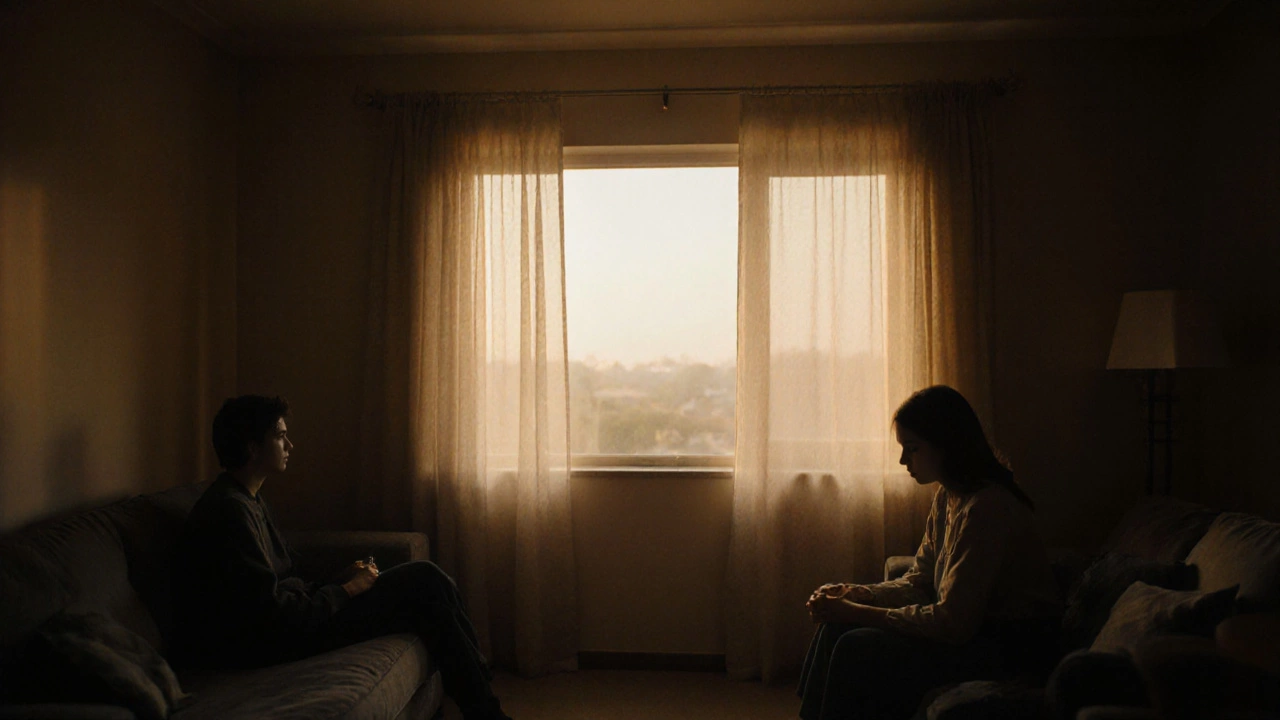You’re sitting across from your partner after a fight. The air is thick. They’re quiet. You’re waiting for them to say something-anything. So you start talking. To fill the silence. To fix it. To make it better. But what if the silence isn’t broken because it’s broken? What if it’s there because it’s needed?
Breaks aren’t about fixing things-they’re about feeling them
Most people think a break in a relationship means you’re taking time to fix what’s wrong. You’ll reflect. You’ll journal. You’ll come back with solutions. But that’s not how it works. Real breaks aren’t problem-solving sessions. They’re emotional reset buttons. And talking during that time? It often undermines the whole point.
Think about it: when you’re overwhelmed, do you want someone to talk you out of it? Or do you just want to sit with it? Relationships work the same way. When one person asks for space, they’re not asking for advice. They’re asking for permission to feel without being fixed.
A 2023 study from the University of Leeds tracked 217 couples who took intentional breaks after major conflicts. Those who respected silence for at least 48 hours reported 40% higher satisfaction in reconciliation than those who texted, called, or tried to ‘talk it out’ during the break. Why? Because talking too soon turns emotional processing into performance. You’re not healing-you’re rehearsing.
Why silence feels like rejection (and why it’s not)
When your partner goes quiet during a break, your brain doesn’t see it as rest. It sees it as abandonment. Your amygdala kicks in. ‘Are they leaving?’ ‘Did I mess up too bad?’ ‘Is this the end?’
That’s natural. But it’s not accurate. Silence during a break isn’t punishment. It’s self-preservation. People don’t pull away because they don’t care. They pull away because they care too much-and they’re afraid of saying the wrong thing, saying too much, or saying nothing at all and still being misunderstood.
One woman I spoke to, Sarah, 34, took a three-day break after a fight about money. Her partner didn’t text. Didn’t call. She panicked. Then she found out he’d spent those days walking through Roundhay Park, not thinking about the argument, but about how he’d stopped listening to her. He wasn’t avoiding her-he was trying to hear himself again.
That’s the difference: silence as avoidance vs. silence as return.
What happens when you talk during a break
When you break the silence, you do three things:
- You interrupt the other person’s emotional processing
- You turn their space into your problem to solve
- You make them feel like their need for quiet is invalid
It doesn’t matter if your intention is good. ‘I just wanted to check in’ sounds caring. But if they asked for space, your check-in feels like pressure. It says: ‘Your feelings aren’t enough. You need me to fix them.’
And that’s the quiet killer of relationships-not the fights. It’s the inability to let someone be in their own head without stepping in.
Think of it like this: if your friend was grieving, would you sit with them in silence? Or would you keep talking to cheer them up? You’d sit. Because you know grief doesn’t need fixing. Emotional exhaustion after a fight is no different.

How to handle the urge to talk
You feel the pull. You want to text. You want to call. You want to say, ‘I’m sorry,’ ‘I miss you,’ ‘Can we talk?’ Here’s what actually works instead:
- Write it down. Not to send. Just to get it out of your head. Then delete it.
- Go for a walk. Alone. Let your body move while your mind settles.
- Do something that requires zero emotional output-cook, clean, paint, play an instrument.
- Set a timer. ‘I won’t reach out until tomorrow at 6pm.’ Then wait.
These aren’t tricks. They’re acts of respect. You’re saying: ‘I trust you to do the work you need to do. And I trust me to be here when you’re ready.’
When silence becomes avoidance
Not all silence is healthy. There’s a difference between a break and a ghosting. Here’s how to tell:
| Healthy Silence | Avoidance |
|---|---|
| Agreed upon in advance | Never discussed |
| Has a clear end time or condition | No timeline, no closure |
| Used for reflection, not punishment | Used to make the other person ‘pay’ |
| Followed by calm, honest reconnection | Followed by coldness or blame |
If the break was never agreed on-if it just happened-then it’s not a break. It’s a freeze. And that’s a different problem entirely.

What to say when you reconnect
When the time comes to talk again, skip the ‘so what happened?’ opener. That puts them on the spot. Instead, try:
- ‘I missed you. And I’m sorry I didn’t give you space the way you needed.’
- ‘I’ve been thinking about how we talk when we’re upset. I want to do better.’
- ‘I don’t need you to fix anything right now. I just want to hear how you are.’
These phrases work because they don’t demand. They invite. They say: ‘I’m not here to fix you. I’m here to be with you.’
One couple I spoke to, Mark and Lena, started doing this after a six-month silence that almost ended them. They began each reconnection with one sentence: ‘I’m here. You don’t have to be okay.’ That one line changed everything. No pressure. No performance. Just presence.
Breaks aren’t the end-they’re the pause
The most powerful thing you can do in a relationship isn’t to talk more. It’s to learn when not to. To hold space without trying to fill it. To sit with discomfort without rushing to fix it.
Love isn’t always about solving problems. Sometimes, it’s about letting someone be quiet. And trusting that they’ll come back-not because you chased them, but because they chose to.
So next time you’re tempted to talk during a break-don’t. Just breathe. Wait. Let the silence do its work. And when they’re ready? They’ll find you. Not because you called. But because you stayed still enough for them to hear you.






